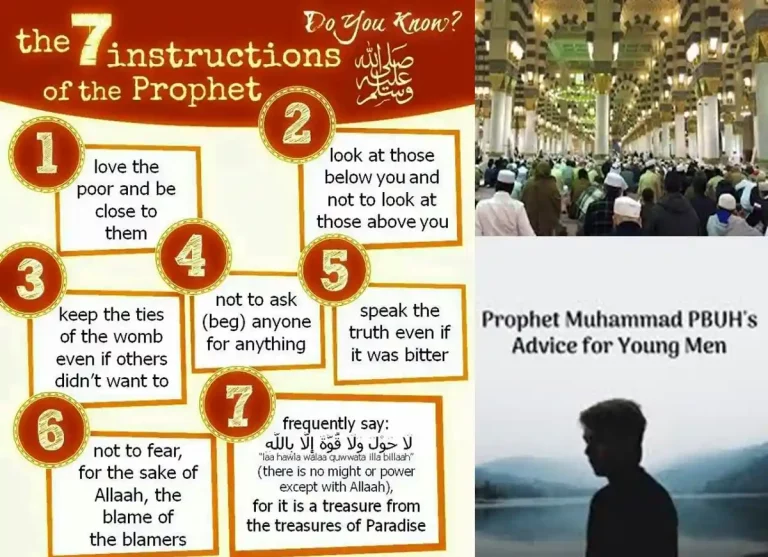The Rise of Islam – The Prophet (PBUH) began to preach Islam now. Khadija, his wife, ‘Ali, his cousin aged eight, Abu Bakr, his friend, and Zayd bin Haritha, his slave, accepted Islam the very first day.
Their acceptance of Islam was a very strong proof of their trust in the Prophet’s truthfulness, as they had been close witnesses of his private and public life for forty years. Bilal, ‘Amr bin ‘Abasa, and Khalid bin S’ad bin ‘Aas also embraced Islam after a few days.
Abu Bakrwas a wealthy businessman and had a cloth shop in Makkah. He had a wide circle of friends and acquaintances. Upon his call ‘Uthman bin ‘Affan, Zubayr, ‘Abdur Rahman bin ‘Awf, Talha, and S’ad bin Abi Waqqas came to the fold of Islam.
After them Abu ‘Obayda, ‘Aamir bin ‘Abdullah bin Al–Jarrah (later known as Ameenul Ummah, the Trustee of the Community), ‘Abdul Asad bin Bilal, ‘Uthman bin Maz’un, ‘Aamir bin Fuhayra Azdi, Abu Huzayfa bin ‘Utba, Saaeb bin ‘Uthman bin Maz’un, and Arqam entered into Islam.
In women, after Ummul Mo`mineen (Mother of the believers) Hazrat Khadija, Ummul Fazl, wife of the Prophet’s uncle ‘Abbas, Asma bint ‘Umays, Asma bint Abu Bakr, and Fatma, sister of ‘Umar, became Muslims. (In the authentic narrations of Sahih Bukhari, Sunan Tirmizi, Musannif ‘Abdur Razzaq, Mustadrak Haakim, and Musannif bin Abi Sheba, there is a mention of the order in which these Companions entered into Islam)
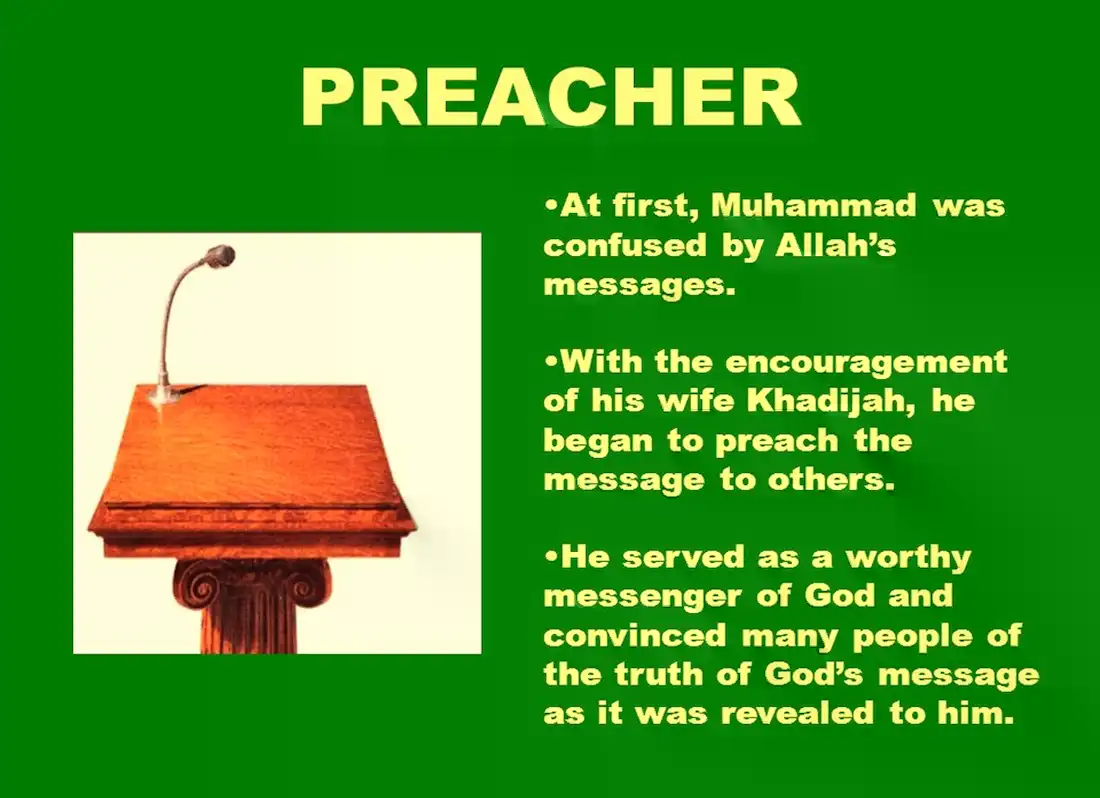
In those days Muslims used to say their Salah (Prayers) in a valley. Once when the Prophet (PBUH) was saying his Salah there with Hazrat ‘Ali, Abu Talib, his uncle, accidentally came upon them. Surprised at the new way of saying prayers, he stopped there and watched them. When they completed their prayers, he inquired of them what religion that was.
The Rise of Islam – The Prophet (PBUH) replied that it was the religion of their grandfather Prophet Ibraheem (Abraham, Alayhisalaam). Abu Talib told them that although he was not willing to embrace that religion, they had his full support to follow it. He also assured the Prophet (PBUH) that nobody would dare to oppose him. (Seeratun Nabi, vol. 1, p.206.)
The Prophet (PBUH) preached Islam in secret for three years. But now the time for inviting people openly had arrived, and so the Qur`anic message was revealed to him:
“Herefore proclaim openly Allah’s message”
He also received the instruction: (Seeratun Nabi, vol. 1, p. “And warn your tribe (O Muhammad, pbuh) of near kindred” [Ash-Shu’ara: 214]
One day the Prophet (pbuh) asked Hazrat ‘Ali to arrange for a feast. In fact, this was the first occasion for him to convey the message of Islam openly. The whole family of ‘Abdul Muttalib, including Hamza, Abu Talib, and ‘Abbas, were invited. After they finished eating, the Prophet (pbuh) stood up at his place and thus addressed the guests:
“I have brought such a thing which would suffice for a person both in this world as well as in the hereafter. Who will help me in shouldering this heavy burden?” All present in the gathering remained silent. Suddenly Hazrat ‘Ali stood up and said, “Although I am suffering from pain in my eyes and my legs are thin, I will help you.”

It was an odd sight for the Quraysh to see that two persons, one of whom was only thirteen years old, were announcing their intention to change the world. They could not control their laughter. But future developments proved that what the two said at that time turned out to be a reality later. (Seeratun Nabi, Vol. 1, 210. Tareekhe Tabri, Tafseere Tabri, Allama Shibli clarified that this narration is not free from the tinge of weakness. It is also stated by Imam Ahmad in Musnad, Ibn Katheer in Tafseer, Ibn S’ad in Tabq’at and other narrators of Seerah, but none of the narrations are free from weakness.)
One day the Prophet (PBUH) ascended the Mount Safa and called the people from there. When they gathered, he asked them: “Do you consider me truthful or a liar?”
The audience replied in one voice, “We have never heard you uttering a lie or saying an indecent thing. We know you as Sadiq (the Truthful) and Ameen (the Trustworthy).” The Prophet (PBUH) said thereupon, “Look! I am standing now on top of the hill while you stand beneath.
I am, thus, able to see at both sides of the hill. If I tell you that I am seeing a band of armed bandits the other side which intends to attack Makkah, will you believe it?” “Certainly!” they replied, “because we have no reason to disbelieve a person of integrity like you, especially when you are standing at a high place from where you could see both sides.”
Rise of Islam– The Prophet (PBUH) said, “This was an example to make my point clear. Now know it that death is close at hand and that you have to appear in front of Allah. I am seeing the world-after-death as clearly as you are seeing the present world.”
The Prophet (PBUH) made an attempt this way to show them the role of a Prophet and to convince them by giving an example that it was possible for a person to see the hereafter while thousands of others were not able to see it. (Sahihayn.)
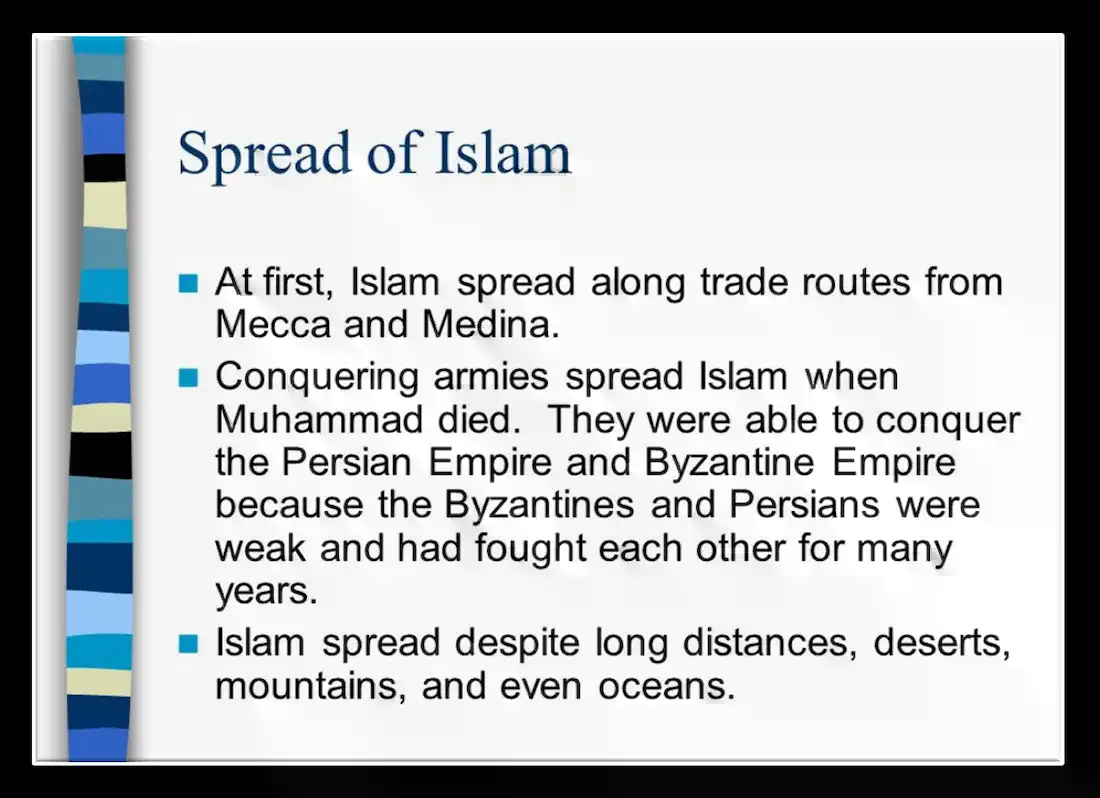
Call Toward Tawheed and Violent Opposition of Polytheists
At that time the number of Muslims had grown to forty. The Prophet (pbuh) went to Al-Haram and proclaimed Tawheed (Oneness of God) there. This immediately raised a stir among the disbelievers as they considered it a serious insult to Al-Haram. They attacked the Prophet (pbuh) from all sides.
Rise of Islam -Learning about it, Harith bin Abi Hala (son of Hazrat Khadija from her first husband) who was at his home, rushed to Al-Haram and tried to shield him. But the swords fell upon him from all sides and he fell a martyr. This was the first instance when the earth was colored with blood for the sake of Islam. (Al-Asaba, Ibn Hajar, Zikr Harith bin Abi Hala.)
Now the Prophet (PBUH) started preaching publicly. He went to each and every fair as well as to narrow streets, explained to the people the value of Tawheed, and forbade them from worshipping idols, stones, and trees.
He preached that they should believe in God as being free from all shortcomings and limitations, and have firm faith that the earth and the skies, the moon and the sun, and all small and big things are Allah’s creation and are totally dependant on Him. It is He, he explained,Who accepts a supplication, cures the sick, and grants a wish.
None can do anything without Allah’s permission; even the angels and the Prophets are unable to do anything against His will. In those days ‘Ukaaz, ‘Uyeena, and Zil-Majaz were famous fairs in Arabia, which were thickly attended by people from distant places. The Prophet (pbuh) used to visit these fairs and preach Islam and Tawheed to the people there. (Imam Tirmizi in Sunan, Imam Haakim in Mustadrak, Imam Ahmad in Musnad, and narrators of seerah in their books have)

The Rise of Islam – When the Prophet (PBUH) started preaching Tawheed and denouncing idol worship openly, some chiefs of the Quraysh complained to Abu Talib about it. Abu Talib consoled them but as the point of dispute remained and as the Prophet (PBUH) did not stop preaching, a delegation came to Abu Talib again. It comprised all important chiefs of the Quraysh, such as ‘Otba bin Rabi’a, Shayba, Abu Sufyan, ‘Aas bin Hisham, Abu Jahl, Waleed bin Mugheera, and ‘Aas bin Wael.
They complained that as the Prophet (pbuh) denounced their deities and accused their forefathers as misguided and foolish, Abu Talib should either withdraw his support from him, or openly side with him to fight against them so that the dispute is decided forever.
When Abu Talib realized the grimness of the situation – seeing that the Quraysh were serious and that he alone was not strong enough to face their united strength – he expressed his helplessness to the Prophet (PBUH) in a brief remark: “Dear to me as my life! Don’t put on me a burden that I may not be able tobear.”
Rise of Islam– Apparently, the only support that the Prophet (PBUH) had was from Abu Talib. When the Prophet (PBUH) noticed that Abu Talib was wavering, he told him with tearful eyes, “By Allah! If these people put the sun in my one hand and the moon in the other, I will not forsake preaching. Either Allah will bring this mission to fulfillment, or I will sacrifice my life for it.”
The sincere resoluteness of the Prophet’s voice deeply touched the heart of Abu Talib. He assured him of his support in these words: “Go. None will be able to do any harm to you.” mentioned it. Imam Tirmizi and Imam Zahabi have did the Tasheeh of this Hadith. As-Seeratun Nabawiya lil Zahabi, 86-87, Mustadrak Haakim, 3: 577.
The Prophet (pbuh) continued to propagate Islam. Although the Quraysh could not dare to make an attempt on his life, they missed no opportunity to persecute him: they strew thorns in his path, put filth on his body while he was engaged in prayers, and cast aspersions on him. (Seeratun Nabi, 1: 221.)
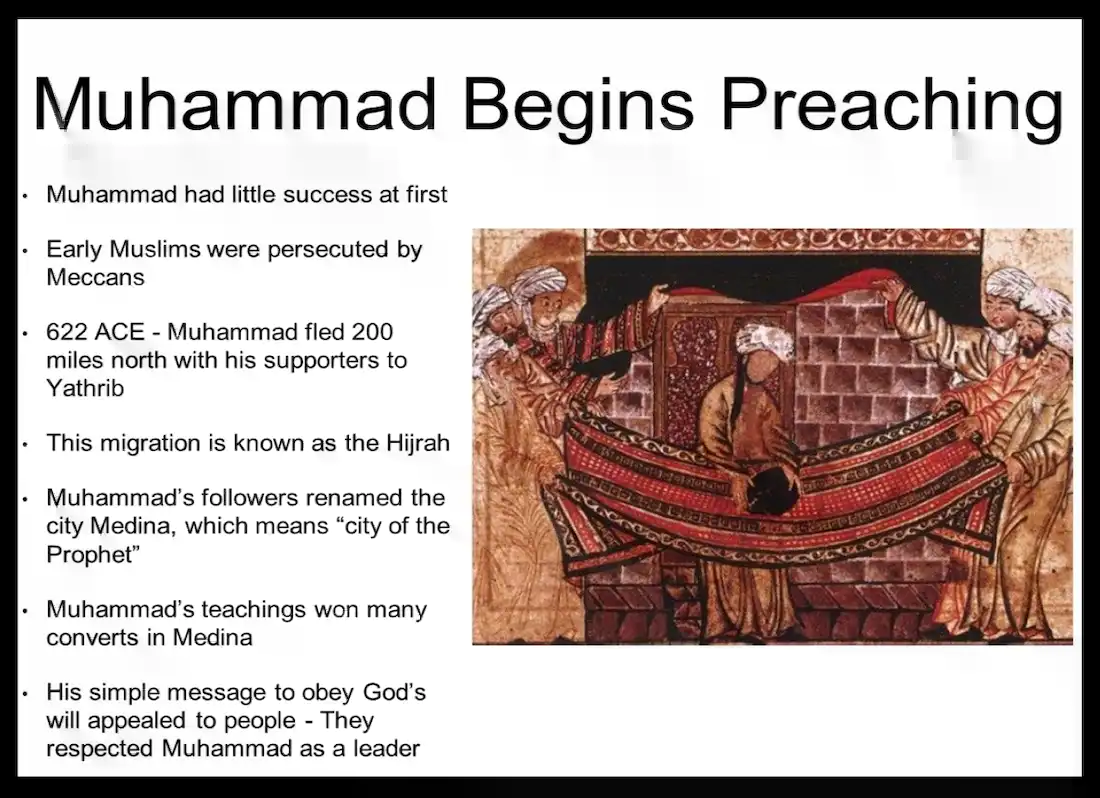
Abdullah bin ‘Amr bin Al-’Aas relates as eye witness that one day when the Prophet (PBUH) was offering Salah in Al-Haram, ‘Oqba bin Abi Mo’eet came there. He rolled his sheet in the form of a rope and when the Prophet (PBUH) went in prostration (Sajda), he put the sheet around his neck and started tightening it. Although the sheet had started pressing his neck very badly, the Prophet (PBUH) remained patient. Hazrat Abu Bakr Siddique pushed ‘Otba away and recited the verse of the Qur`an:
“Would you kill a man because he says: My Lord is Allah, and he has come to you with clear signs (proofs) from your Lord?” [Ghaafir, 40: 28].
Some rogues attacked Abu Bakr and seriously hit him. (Sahih Bukhari, Bab Bunyanul Ka’aba, Bab Zikr ma Laqiyan Nabi wa Ashabuhu min Quraish bi Makkah.)
Rise of Islam– On another occasion when the Prophet (PBUH) was offering Salah in Al-Haram, some members of the Quraysh assembled in an open area inside the K’aba. Abu Jahl said that a camel was slaughtered that day, the intestine of which was thrown out at a place. He suggested that somebody should bring it from there and put it over the Prophet (PBUH) when he was in prostration.
‘Oqba rose from his place, brought the camel’s intestine, and put it over the Prophet (PBUH) while he was engaged in prayers. The (PBUH) remained fully engrossed in his prayers. The Quraysh started laughing loudly, enjoying their indecent joke and falling upon each other in merriment.
Ibn Mas’ud, a Companion of the Prophet (PBUH) was watching it all, but he dared not intervene due to the presence of a large number of disbelievers there. Suddenly, Fatma Zahra, the daughter of the Prophet (PBUH) came upon the scene. She removed the dirt from the back of her father and scolded the rogues. (Sahih Bukhari, Bab Bunyanul Ka’aba, Bab Zikr ma Laqiyan Nabi wa Ashabuhu min Quraish bi Makkah.)
Rise of Islam– Once, the opponents assembled to decide what they should tell the persons coming to Makkah from outside about the Prophet (PBUH) so that they were not influenced by him. One of them suggested that they should tell them that he was a soothsayer. Waleed bin Mugheera, an aged person, opposed by saying that he had seen several soothsayers and that the rattling of the soothsayers was no match to the sayings of Muhammad (PBUH).
Rise of Islam– He underscored that they should not say anything that the Arabs coming from other places to Makkah might reject as untrue. Upon it another person suggested that they should declare Muhammad (PBUH) as insane. Waleed opposed it also by pointing out that insanity had nothing to do with him. A third person proposed that the Prophet (PBUH) should be projected as a willful poet.
Waleed retorted that the Arabs knew very well what poetry was and would find out that the Prophet’s recitations were never poetic compositions. Yet another suggestion came to the floor that the Prophet (PBUH) should be accused of being a magician. Waleed commented in disappointment that the magicians were known for their weird appearance and dirty habits, and that Prophet Muhammad’s lifestyle was, in contrast, so clean and sophisticated.
Thereupon, the audience left the matter to Waleed and asked him to come up with a suggestion. He said that he honestly believed that Muhammad’s words had an appeal and his conversation was filled with sweetness. He suggested that the only thing that could be said against him was that his words were such which separated a son from his father, a brother from his brother, and a husband from his wife, and so people should stay away from him.
All agreed to Waleed’s proposal. After this consultation, they used to sit by the pathways leading to Makkah and tell the incoming people about the ill effects of listening to the words of the Prophet (PBUH) (As-Seeratun Nabawiya lil Zahabi, p. 89-90.)
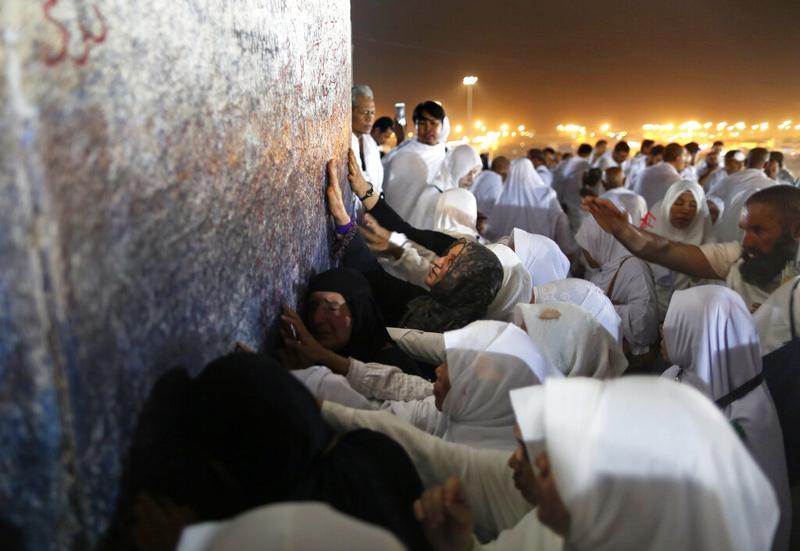
MORE INFORMATION:
About CEO Al-Asad Online
Hafiz Abdul Hameed
Master In Islamic Studies
(Tajweed, Waqf)
Web Developer/Administrator
Web Content Writer
Blogger, SEO Expert
Graphic Designer
WhatsApp: +92 3017363500
E-Mail: [email protected]





